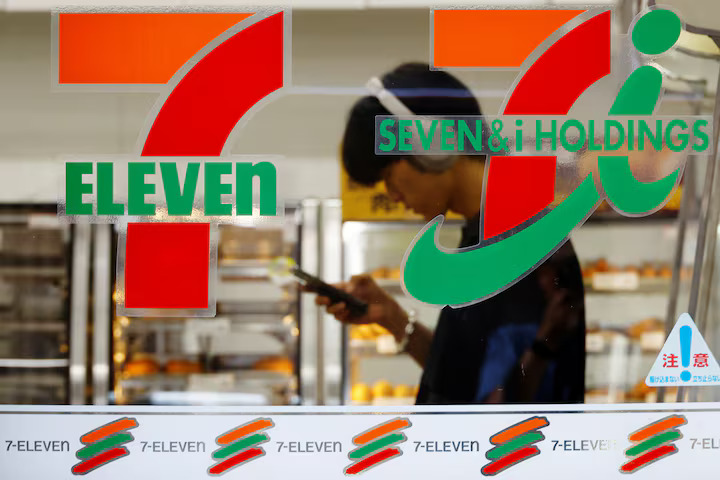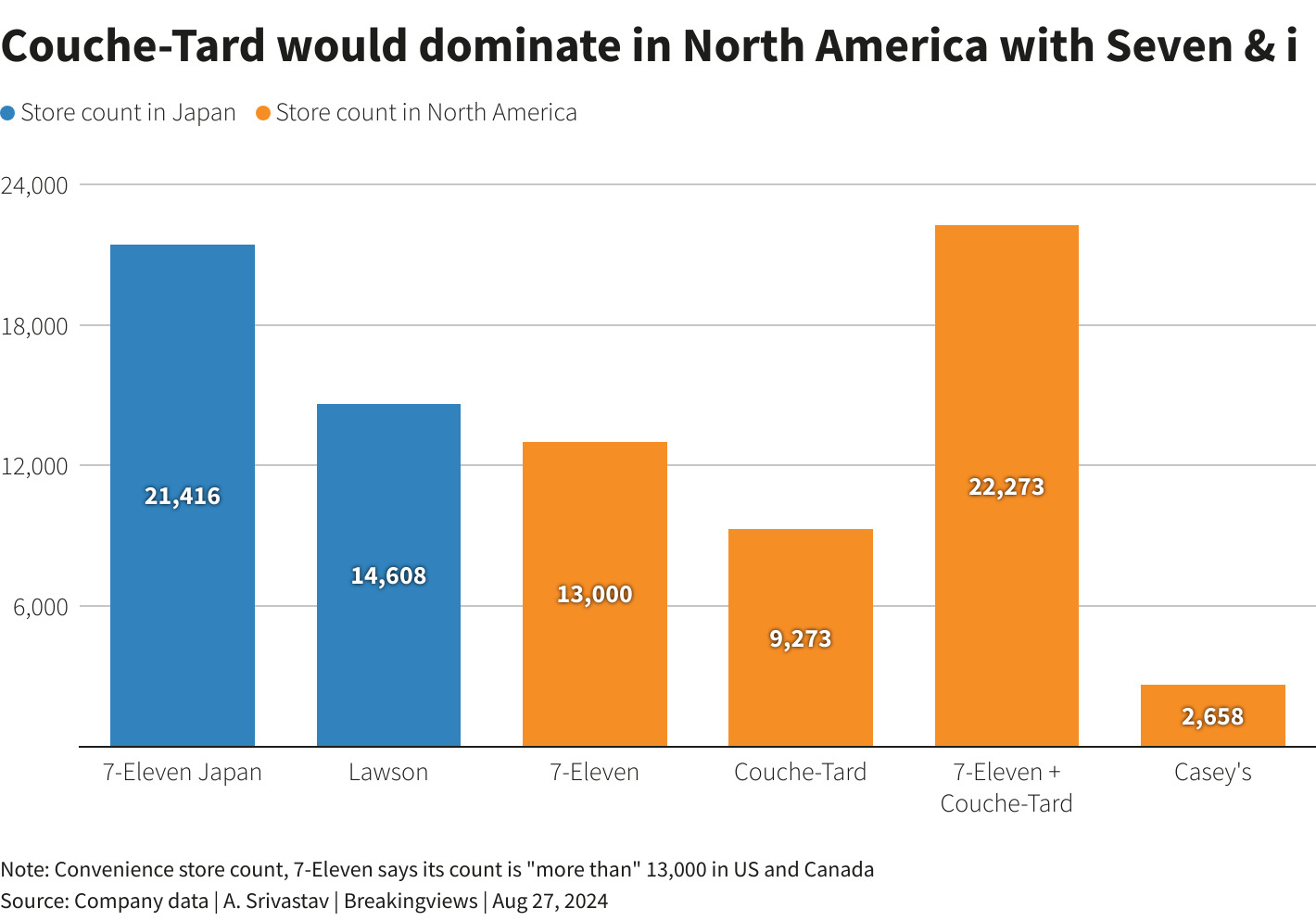MUMBAI -- Sometimes silence is golden. Japan's government will ultimately need to block or clear any formal takeover offer from Canada's Alimentation Couche-Tard for Seven & i, the owner of 7-Eleven convenience stores. For now, though, Tokyo is better off staying schtum.
The stores known as “conbini” are so deeply embedded in everyday life in Japan they are akin to national infrastructure.
The outlets are food retailers and a place to pay bills as well as for dropping off luggage before hopping onto a train.
They provide vital services to rural communities when natural disasters strike.
If stores don't perform, they can impact people's lives. What’s more Japan, like other developed countries, has ramped up its scrutiny of foreign investment in recent years.
Yet the government will need to weigh any misgivings about a takeover by the Canadian operator of Circle-K stores against its official effort to improve corporate governance and shareholder value in Japanese companies.
As part of a broad campaign to shake off three decades of economic stagnation, the Ministry of Economy, Trade and Industry is trying to attract foreign direct investment and create a welcoming environment for outside investors, including activists.
It is nudging Japanese companies to seriously consider bona fide feasible takeover bids.
If policymakers objected to Couche-Tard, as French ministers did when the $55 billion company tried to buy supermarket operator Carrefour in 2021, they would undercut a message that Japan is open for business.
Fortunately, politicians can afford to sit quietly on the sidelines.
Couche-Tard's offer is currently non-binding. If formalised, the special committee of Seven & i board members will have to judge it against the company's existing value-creation plans.
Hurdles in North America could be an obstacle: the two companies are top operators of convenience stores.
Even if Couche-Tard shed 10 percent of 7-Eleven stores there due to antitrust laws it would still have seven times the number of the next-largest competitor, Casey’s General Stores, JPMorgan analysts reckon.
|
|
| Reuters Graphics |
However, if the Quebec-based company put a compelling offer directly to shareholders, it would put politicians on the spot.
Japan rarely explicitly blocks foreign takeovers, preferring a passive-aggressive approach that involves extending approval timelines or quietly asking bidders to withdraw.
In public, Japan may find it hard to mount a strong national-interest defence. The $37 billion Seven & i has over 21,000 7-Eleven stores in Japan, but rival Lawson has nearly 15,000.
For now, Japanese officials can enjoy the benefits of a shareholder value push that has produced a record number of proposals from institutional shareholders and share buybacks by companies.
It has also emboldened acquirors, though. With Seven & i shares hovering around 16 percent above their price before Couche-Tard came along, Tokyo may soon find itself on the spot.
Context news
Seven & i confirmed on August 19 that it had received a confidential, non-binding, preliminary proposal from Canada’s Alimentation Couche-Tard to acquire all outstanding shares of the company.
The Japanese company said its board of directors has formed a special committee to review the proposal, the company’s stand-alone plans and other alternatives, following which a response will be made to the Canadian firm.
Seven & i shares closed on August 26 at 16 percent above their price on August 16, the last trading day before Couche-Tard's offer.





















































